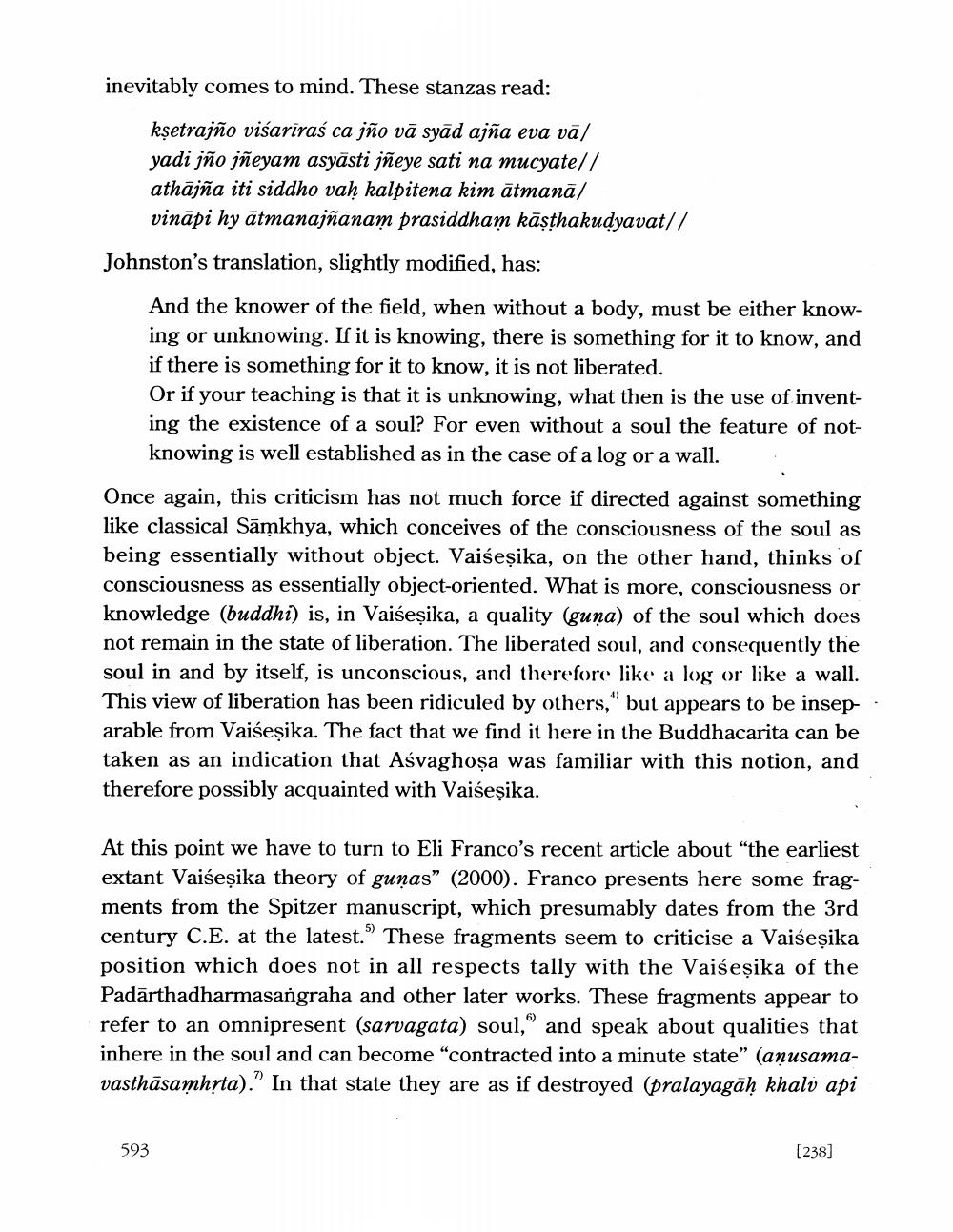________________
inevitably comes to mind. These stanzas read:
kşetrajño viśariraś ca jño vā syād ajña eva vā/ yadi jño jñeyam asyāsti jñeye sati na mucyatel/ athājña iti siddho vah kalpitena kim ātmanā/ vinäpi hy ātmanajñānam prasiddham kāşthakudyavat//
Johnston's translation, slightly modified, has:
And the knower of the field, when without a body, must be either knowing or unknowing. If it is knowing, there is something for it to know, and if there is something for it to know, it is not liberated. Or if your teaching is that it is unknowing, what then is the use of inventing the existence of a soul? For even without a soul the feature of notknowing is well established as in the case of a log or a wall. .
Once again, this criticism has not much force if directed against something like classical Sāmkhya, which conceives of the consciousness of the soul as being essentially without object. Vaiseșika, on the other hand, thinks consciousness as essentially object-oriented. What is more, consciousness or knowledge (buddhi) is, in Vaiseșika, a quality (guna) of the soul which does not remain in the state of liberation. The liberated soul, and consequently the soul in and by itself, is unconscious, and therefore like a log or like a wall. This view of liberation has been ridiculed by others," but appears to be insep-. arable from Vaiseșika. The fact that we find it here in the Buddhacarita can be taken as an indication that Aśvaghoṣa was familiar with this notion, and therefore possibly acquainted with Vaiseșika.
At this point we have to turn to Eli Franco's recent article about "the earliest extant Vaiseșika theory of gunas" (2000). Franco presents here some fragments from the Spitzer manuscript, which presumably dates from the 3rd century C.E. at the latest." These fragments seem to criticise a Vaiseșika position which does not in all respects tally with the Vaiseșika of the Padārthadharmasangraha and other later works. These fragments appear to refer to an omnipresent (sarvagata) soul, and speak about qualities that inhere in the soul and can become “contracted into a minute state" (anusamavasthāsamhrta)." In that state they are as if destroyed (pralayagāh khalv api
593
[238]




